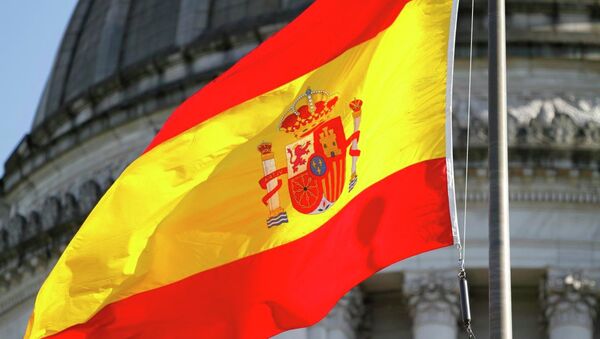MOSCOW (Sputnik), Anna Liatsou — The countries of European south, including Greece and Spain, were among those hardest hit by the global financial crisis of 2008-2009. Greece's overall debt is currently estimated to be around $350 billion.
"Spain is a very competitive country… we have a modern industry, internationalized companies, exports records, we are a world leader in tourism, our professionals are highly demanded abroad, we are part of an expanding culture in Latin-America. I think we have great cards to play," Jose Maria Beneyto said.
Late in April, Spain’s statistic institute confirmed that the country’s economy was in strong recovery, having expanded by 0.9 percent in the first quarter of 2015 compared to the fourth quarter of 2014. The government voiced expectation that the unemployment rate in Spain will go down from the current 23.7 percent to 15.6 percent within the next three years.
The nationalism of many EU anti-austerity parties makes it unlikely that they will gain a pan-European momentum, the conservative Spanish People’s Party foreign affairs spokesman told Sputnik Friday.
"Most of them [anti-austerity parties] are nationalistic parties and, therefore, I do not see a pan-European movement there. They are not thinking about the future of Europe as a whole, but about the future of their own countries in isolation," Jose Maria Beneyto said.
Still, according to Beneyto, most Europeans value social protections systems their countries built over the last century and want to make these systems "flexible and adaptable to different economic situations."
"That is why I think that anti-austerity parties will not prevail in Europe," Beneyto said.
In Madrid, PP won 21 out of the 57 seats in the local assembly. The Madrid Now (Ahora Madrid) coalition, supported by a number of left-wing movements, including the anti-austerity Podemos, came close second with 20 seats, while PSOE only won nine seats.
Eurosceptic anti-austerity parties are also one the rise of popular support in other parts of Europe, with France' National Front and Britain's UK Independence Party being the most prominent examples.






